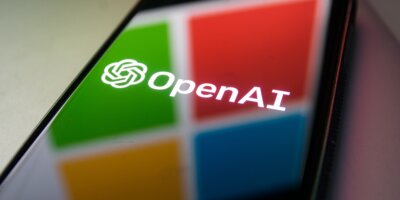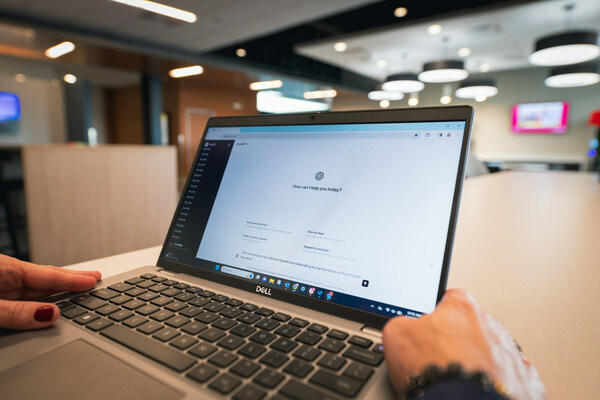
An ASU faculty member creates a prompt for ChatGPT Enterprise. (Source – ASU)
AI in Education: OpenAI announces first university partnership
- Arizona State University will be the first higher education institution to collaborate with OpenAI.
- The university is setting a new precedent for how universities can enhance learning.
- Academicians are now beginning to realize the potential of technology.
AI in education is still in its early stages as many schools, universities and colleges try to figure out how they can use the technology without compromising the integrity of the education they deliver. Certainly, AI in education is becoming a shortcut for many, especially when it comes to getting work and research done.
Even before OpenAI’s ChatGPT created the AI buzz in many industries, emerging technologies were already making an impact in the education sector. Schools and universities had no choice but to fall back on remote learning applications during the Covid-19 pandemic. This included conducting teaching and assessments virtually.
Several apps were developed to support remote learning and help students with their work. Examples include Duolingo, which is also the most popular app for learning to speak a new language. It’s game-like exercises and user-friendly interface lend to its massive popularity. Another example is Khan Academy Kids an award-winning app, targeted at Pre-K to second-grade level students.
Despite these apps proving to be successful, their capabilities were still far less than what AI in education was promising. While many academicians still feel AI in education can be a tool that is used for the wrong reasons, some are now beginning to realize the potential of technology. According to a report by Oxford University Press, 68% of school teachers in the UK and 69% of English language teachers in Europe say that they see the benefits of AI for education but are mindful of the risks.
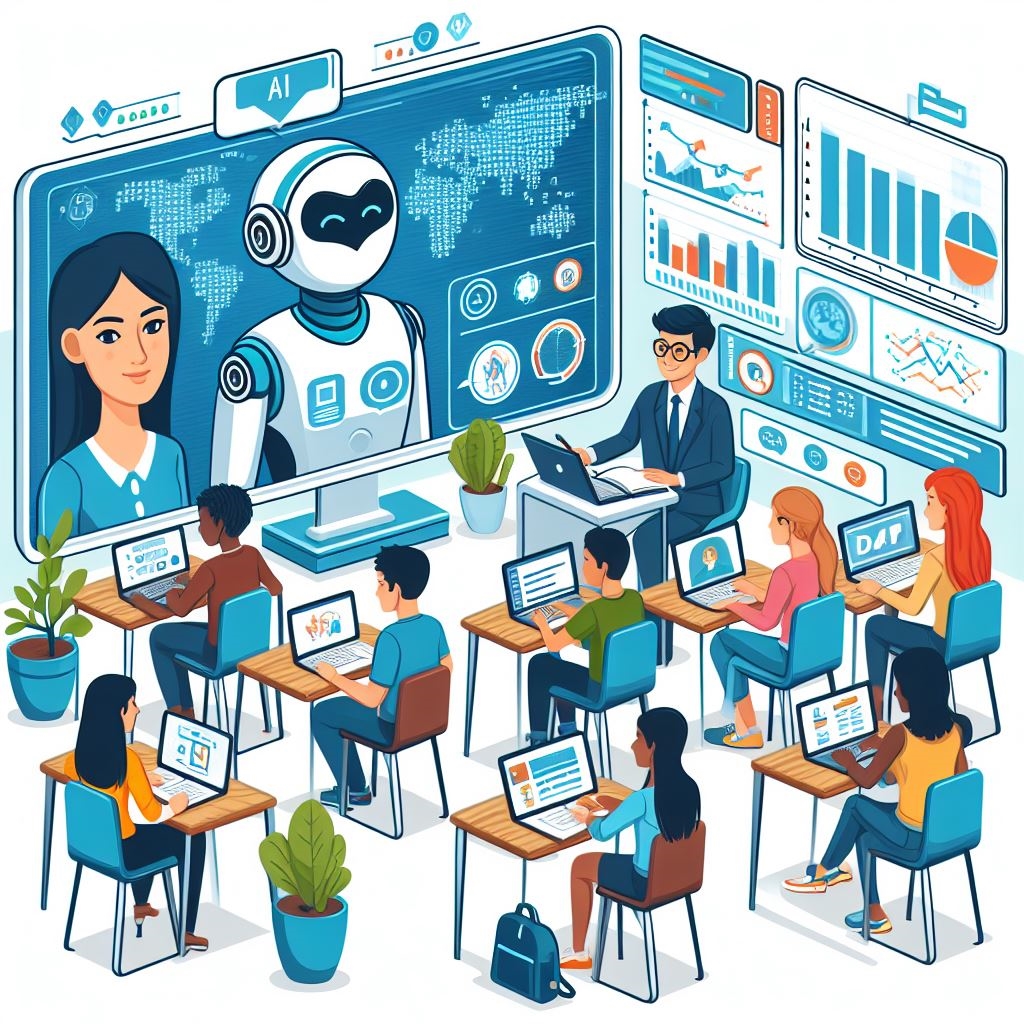
While many tutors still feel AI in education can be a tool that is used for the wrong reasons, some are now beginning to realize the potential of technology. (Image generated by AI).
Today, there are many applications for AI in education. This includes;
- Personalizing learning: AI can help tailor the content, pace, and feedback to each student’s needs, preferences, and goals. For example, AI can create adaptive learning systems that adjust the difficulty and topics of the lessons based on the student’s performance and progress.
- Enhancing teaching: AI can help teachers save time, improve their practice, and provide better support to their students. For instance, AI can automate tasks such as grading, attendance, and data analysis, and provide teachers with insights and recommendations to improve their instruction and feedback.
- Supporting equitable and inclusive learning: AI can help reduce barriers and biases in education, and promote diversity and inclusion. An example of this is where AI can provide access to quality education for students in remote or underserved areas, and offer translation, transcription, and accessibility features for students with different languages, cultures, and abilities.
There is no doubt that AI in education has many potential benefits, but also some challenges and risks, such as ethical, social, and technical issues. Therefore, it is important to ensure that AI in education is guided by human values, principles, and standards and that it fosters the development of skills and competencies that are relevant and meaningful for the future.
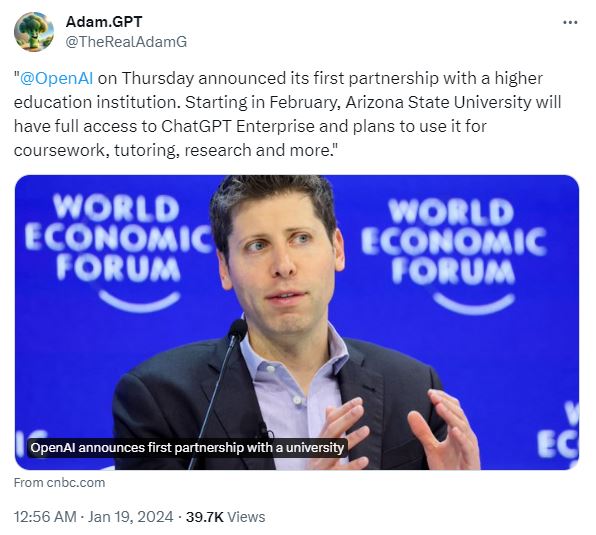
OpenAI partners Arizona State University on AI in education.
OpenAI announces first university partnership to boost AI in education
One of the biggest challenges for AI in education is dealing with plagiarism. OpenAI had initially launched a plagiarism checker tool to help with this problem. However, the AI classifier tool was removed due to its low rate of accuracy.
While universities claim they have ways of detecting whether coursework and assignments are AI-generated, the reality is that students are also finding ways to use AI tools smartly. They may not copy the input suggested by ChatGPT or any other AI tools but instead, use the information as the basis for their work and such.
Given this scenario, OpenAI has been looking for opportunities to partner with higher education institutions to research and develop how the technology can benefit the education sector without compromising the education process.
Arizona State University (ASU) will be the first higher education institution to collaborate with OpenAI. This collaborative effort introduces the advanced capabilities of ChatGPT Enterprise to the university, empowering faculty and staff to explore the potential of generative AI to enhance teaching, learning and discovery, while also ensuring increased levels of privacy and security.
“ASU recognizes that augmented and artificial intelligence systems are here to stay, and we are optimistic about their ability to become incredible tools that help students to learn, learn more quickly, and understand subjects more thoroughly,” ASU President Michael M. Crow said.
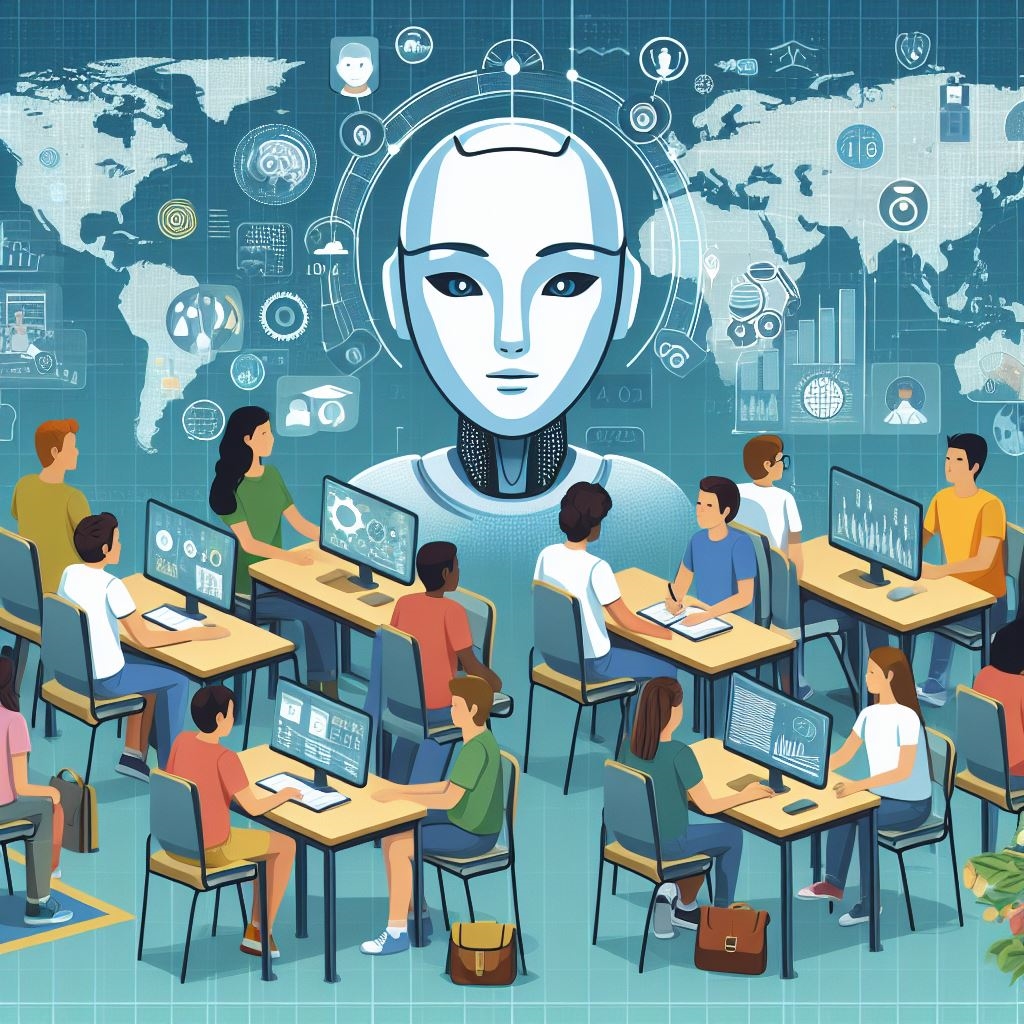
Arizona State University (ASU) will be the first higher education institution to collaborate with OpenAI. (Image generated by AI).
Starting in February, ASU will run an open challenge that invites faculty and staff to submit their ideas for best-use scenarios. The three key areas of concentration include:
- Enhancing student success.
- Forging new avenues for innovative research.
- Streamlining organizational processes.
The goal is to leverage ASU’s intense knowledge core – the faculty, researchers and staff who drive one of the largest public research universities in the United States – to be at the forefront of discovery and implementation.
OpenAI chief operating officer Brad Lightcap commented, “Learning is core to why so many users love ChatGPT. ASU continues to lead in innovation by integrating ChatGPT into its educational programs. We’re keen to learn from ASU, and to work toward expanding ChatGPT’s impact in higher education.”
On concerns of privacy and security of the university’s data, any prompts the ASU community inputs into their chat board remain secure with ChatGPT Enterprise. OpenAI does not use this data for its training models, ensuring any prompts are kept private and secure.
The university is setting a new precedent for how universities can enhance learning, creativity and student outcomes while remaining committed to leading in the innovation and responsible use of technology.
READ MORE
- 3 Steps to Successfully Automate Copilot for Microsoft 365 Implementation
- Trustworthy AI – the Promise of Enterprise-Friendly Generative Machine Learning with Dell and NVIDIA
- Strategies for Democratizing GenAI
- The criticality of endpoint management in cybersecurity and operations
- Ethical AI: The renewed importance of safeguarding data and customer privacy in Generative AI applications



